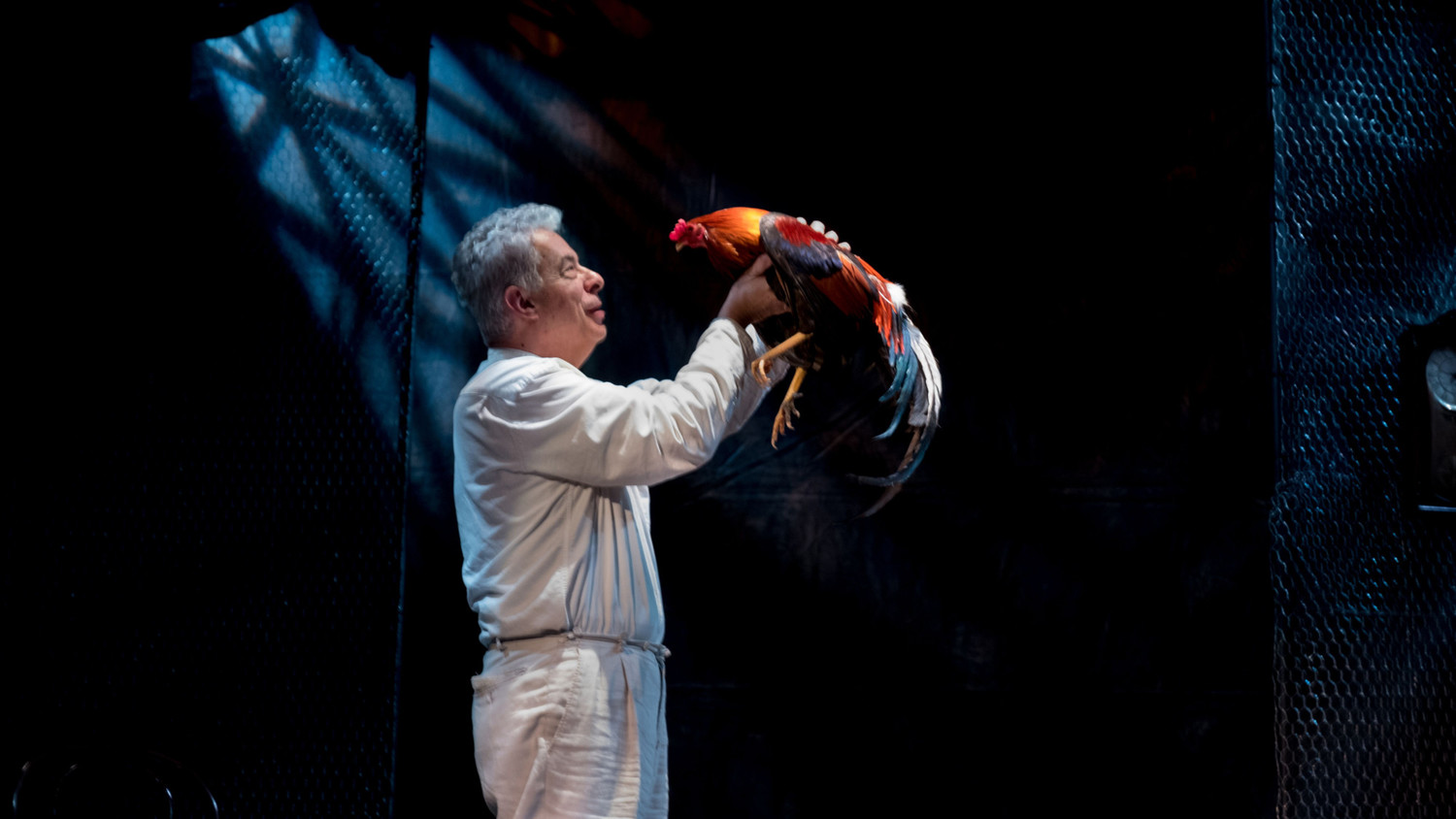Review: EL CORONEL NO TIENE QUIEN LE ESCRIBA at Harlem Stage

Based on a novella by Nobel Prize winner Gabriel García Márquez, El Coronel No Tiene Quien Le Escriba is being presented in Spanish (with English supertitles) by Repertorio Español. A veteran of a Columbian civil war, the Colonel lives with his wife in a small village under martial law. They are impoverished and very hungry. Every Friday he waits for the postmaster. A letter is supposed to arrive with his pension from the war. No mail has arrived for fifteen years, hence the story's title which translates as "No One Writes to the Colonel."
Director Jorge Alí Triana adapted this story with Verónica Triana. The play opens inside the couple's humble home. It is still winter and the rains are persistent. The Colonel's spouse has asthma and is losing patience with his waiting for a check that never arrives. She sums it up: "we're rotting alive." The action begins with the funeral procession for a recently deceased local musician, the "first natural death in a long time." The situation is gloomy.
The colonel's son was murdered at a cockpit and there is a shrine to him on the wall. His rooster is the only possession still owned by his parents. Do they continue to feed the bird while they remain hungry? There is an expectation that a winning rooster will be worth more money in a few months after training to be a prizefighter. Pride for his son is certainly a factor in this decision.
This melancholic tale is beautifully told in this production. The set designer Raúl Abrego uses simple objects and minimal fuss to create clearly defined scene changes. A table turned one way is for the home. Turned ninety degrees and the scene is an office. The rainy season thematically weighs heavily down on an environment of constant repression.
Every actor in this production delivers a naturalistic performance. As the Colonel, Sebastián Ospina's quiet dignity and proud stature makes his unbending patience believable and heartbreaking. Zulema Clares is Esposa (the spouse). The years of disappointment and the struggles of day-to-day living can be seen in her every move, word and cough.
Thoughtful details enhance the viewing pleasures. When the doctor (Luis Carlos De La Lombana) comes for a visit, he carries an umbrella and looks back towards the ground. At first, I thought there may have been something on the floor by the audience he was carefully avoiding. After the house call, he leaves the same way but carefully steps around the puddles he spotted earlier. Not only is that an interesting choice, it also helps frame survival in a society with curfews under martial law. Here is one man who is more fortunate and with an important career. He manages to better traverse the rains pouring down all over his people.
Woven through this evocative piece is the lovely bond which holds a marriage together. Despite their differences and a lifetime of disappointments, the deep relationship is evident and unspoken. These are forgotten citizens discarded in a world filled with corruption and bureaucracy. Mr. Marquez, a politically liberal writer, wants us to see societal unfairness. This play and these performers offer a moving tribute in a truly memorable staging.
Reader Reviews

Videos

